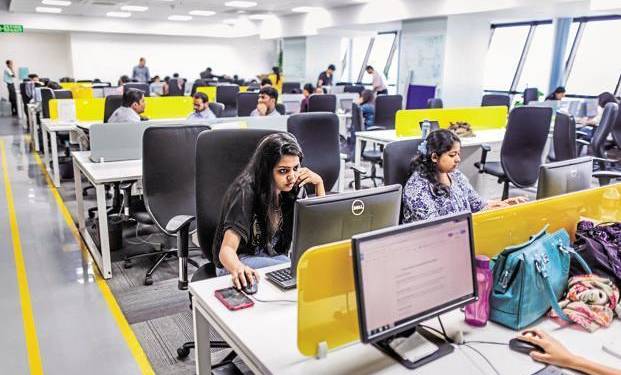The Indian economy is undergoing a short term ‘cyclical’ slowdown with slump in demand. The private consumption, which contributes 55-60 percent of annual National output, has declined slumped to 3.1 percent in Q1 FY20. Gross Fixed Capital Formation (GFCF), a proxy for investment declined from 34.3 percent in 2011 to 28.8 percent in 2018. However, the investors are bullish about long term future of Indian economy as investment in startups is at an all-time high. According to consulting firm EY, 536 startups finalized investment deals in the first half of 2019 which is 43 percent higher than the same period in last year. The total investment in 536 deals 23.4 billion dollars which is 27 percent higher than investment in last year.
“As per EY’s forecast in the beginning of 2019, infrastructure and real estate sectors have taken the lead in attracting PE investments from marquee global investors,” said Vivek Soni, partner and national leader, private equity services, EY.
The surge in investment shows that the global equity players are optimistic about the economic future of India, and not concerned about short term slowdown.
The startups which received funding from venture capitalists are on a hiring spree, amid economic slowdown. Bike rental startup Vogo has planned to double the number of employees by end of next year, as it is taking 5-10 years planning into account. “We plan to invest very significantly in this (people) now, as it is about capability building. A temporary slowdown in India does not necessarily impact the startup economy because the bets these guys (tech startups) are taking are 5-10 years long,” said Vogo’s chief executive, Anand Ayyadurai.
According to the latest data from the Department of Industrial Policy and Promotion (DPIIT), the Startup India scheme has created more than 5 lakh jobs so far. “Start-ups create valuable jobs. 187,004 jobs have been reported by 16,105 Department for Promotion of Industry and Internal Trade (DPIIT)-recognised start-ups, i.e., more than 11 direct jobs per start-up. With each direct job leading to 3x indirect jobs, the total jobs created by these start-ups are estimated at more than 560,000,” said Ramesh Abhishek, DPIIT secretary.
The Modi government had launched two programmes named Startup India (August 2015) and Standup India (April 2016) to encourage entrepreneurship among young populace of the country. There are three pillars of Startup India Simplification and Hand-holding, Funding Support and Incentives, Industry-Academia Partnership and Incubation.
The government launched Pradhan Mantri Mudra Yojana to give low-interest loans to entrepreneurs from underprivileged background. The scheme is expected to increase innovation, productivity and create a huge number of jobs. The Startups are budding due to investors trust in Indian market and favorable governmental policy. India has become second largest hub for startups in 2018.
“Within the early stage, companies are keeping reasonable expectations in terms of valuations. The economic slowdown certainly has a role to play in this sentiment, but we are seeing that companies are not reducing growth targets by a significant measure – which is a very good sign,” said Kshitij Shah, principal at 3one4 Capital, an early-stage investment firm.
The startups valuation has risen exponentially in last few years, and they have taken minimal time to reach billion plus valuation. Udaan, a B2B platform achieved 1 billion dollar valuation in just 24 months. Ola Electric achieved 1 billion dollars in seven months, and the valuation of Byju rose to $5 billion from $1 billion in four months.
The investors have made huge bets on the Startups even if they are making losses. If the VCs are sure about the long term future of the venture, a loss in short term does not matter to them. The Startups have able to defy the cyclical slowdown as the investors had made huge bet on them, excited by the favorable government policy.
The BJP 2019 general election manifesto put great emphasis on encouraging startups. To encourage the startups, the BJP promised collateral free credit up to 50 lakh rupees to entrepreneurs. “We will launch a new scheme to provide collateral-free credit up to 50 lakh for entrepreneurs. We will guarantee 50% of the loan amount for female entrepreneurs and 25% of the loan amount for male entrepreneurs,” read the manifesto. The party also promised to establish a seed startup fund with the amount of 20,000 crore rupees. “We will continue to promote and encourage Staups through creation of a ‘Seed Staup Fund’ of 20,000 crore,” reads the manifesto. The next five years of the Modi government are expected to bring ‘golden days’ for startups.

























